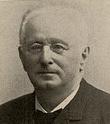Kali-bichrom [Kali-bi]
Especially suitable for light-haired, plump and fat children (Bromium); gradual and insidious onset; MEMBRANOUS CROUP with expectoration of tough, stringy mucus; cough hoarse, metallic, with loud mucous rales, wheezing, rattling dyspnoea, (<) on awaking, at night with definite aggravation towards 3 A.M., GRADUAL INCREASE OF THE DIFFICULTY OF BREATHING, as the tough mucus strangles by its adherence; deglutition painful; stridulus breathing and whispering voice; tonsils and larynx red, swollen, covered by the false membrane, difficult to detach, with expectoration of the tough, stringy mucus, finally breathing performed only by the abdominal muscles and those of the neck and
shoulders; head bent backward; breath offensive; diminished temperature, prostration, stupor and death from asphyxia, if not relieved. Croup extending downward into the bronchi; cough (<) undressing, (>) warm in bed. (Lachesis follows well).
Kali-brom [Kali-br]
SPASMODIC CROUP; child awakens suddenly from a sound sleep by a sense of suffocation, with a peculiar ringing, dry, brassy cough, and hurried breathing; the child is agitated, face flushed, eyes suffused and bloodshot. After one or two hours the child falls asleep and BREATHS EASILY AND NATURALLY, only to awake again in a similar paroxysm; hyperaesthesia of the laryngeal nerves, followed by loss of sensibility in the larynx; hoarseness, extremely painful and disagreeable hacking cough, with paleness and confusion of the head; REMISSION DURING DAYTIME.
Kali-mur [Kali-m]
According to Schussler a great remedy in croupous inflammations with fibrous exudation, during skin eruptions developing after bad vaccination.
Kali-phos [Kali-p]
LAST STAGE OF CROUP, syncope and nervous prostration; pale, bluish face; nasal, slow speech, nearly inarticulate; paralysis of single parts.
Kaolin [Kaol]
Croup seated in lower part of larynx and upper part of trachea, cough accompanied by suffocative attacks; husky voice, metallic rasping cough and difficult breathing; EXTREME SORENESS OF CHEST, THE CHILD DOES NOT WANT ANYTHING TO TOUCH TRACHEA AND UPPER PART OF CHEST; high fever; dry skin; (<) evenings.
Lachesis [Lach]
CROUP in children subject to inflammatory rheumatism; decided aggravation after sleep, after a short nap; the children, as it were, SLEEP INTO THE CROUP, AND WHEN THOROUGHLY AROUSED, BREATHE MORE FREELY; the child cannot bear anything touching the neck; patches of exudation in the fauces, extending downward on pharynx and larynx; commencing paralysis of lungs; left side of throat particularly affected; sensation as if there was something fluttering above the larynx; cough excited by sensation as if a crumb of bread were sticking in throat, causing frequent hawking and swallowing.
Lactic-acid [Lac-ac]
Dryness, scratching and burning in throat; tearing in larynx and trachea, with hoarseness; difficult expectoration of gray taste- less mucus, or so tough that air can hardly pass through it; horrible dreams of abysses and restless sleep; croup SOUND NOT HEARD.
Lobelia-infl [Lob]
SPASMODIC CROUP, with stridulus breathing, ringing cough, dyspnoea; constrictive sensation in the larynx; constant cough and great anguish, with fear of suffocation; sensation of a lump in the throat-pit, impeding respiration and deglutition.
Lycopodium [Lyc]
Hoarseness remaining after croup, or with it loose cough in daytime and suffocative fits at night, or, in general, when suffocative fits alternate with free catarrh; dryness in windpipe, with hoarseness; feeling of rawness in trachea, with increased expectoration of mucus; COUGH IN THE EVENING BEFORE GOING TO SLEEP (Lachesis after sleep), as if the larynx were tickled with a feather, with scanty expectoration; tickling cough, as from fumes of sulphur in larynx, with gray salty expectoration and difficult respiration. Child awakes terrified and cries for some time before it can be quieted.
Naja-tripudians [Naja]
SPASMODIC CROUP. Clogging up of the larynx and trachea with thick mucus, which is hawked up with difficulty; sensation of rawness in larynx and trachea (Causticum), or as if there were a hair in it, causing constant tickling, coughing, hoarseness, finally some expectoration of tenacious mucus; breathing laborious; gasping for breath for several hours.
Phosphorus [Phos]
Hoarseness, with tendency to relapse in tall, slender nervous children, even aphonia after croup; the whole nervous system seems prostrated and the child lies cold, sweaty, with rattling breathing; painfulness of larynx to touch; child remains hoarse and croupy at night, (<) towards morning; a feeling of hunger, demanding food for relief; pain in larynx when speaking; child says it hurts him to talk.
Sambucus-niger [Samb]
SPASM OF THE GLOTTIS, attacking the child during sleep at night, whether, spasmodic or true croup. Quick wheezing-crowing breathing, with suffocative attacks JUST AFTER MIDNIGHT, and from lying with the head low; frequent waking up as if in a fright, with fear of suffocation, mouth and eyes being half open; child sits up in bed to breathe and cough; dry heat during sleep; profuse perspiration only after awakening; DREAD OF BEING UNCOVERED. In dangerous cases with excessive weakness, old- looking features, and threatening paralysis pulmonum.
Sanguinaria [Sang]
PSEUDO-MEMBRANOUS CROUP; chronic dryness of the throat and sensation of swelling in the larynx, with expectoration of thick mucus; APHONIA, with swelling of the throat; steady severe cough without expectoration, with pain in the head and circumscribed redness of the cheeks; tormenting, exhausting cough, wheezing and whistling.
Spongia [Spong]
Children with fair complexion. NO MUCOUS RALES WITH THE CROUP, cough dry and sibilant or it sounds like a saw driven through a pine-board, each cough corresponding to a thrust with the saw; fear of choking to death; stuffed, obstructed sensation, with difficult inspiration; breathing harsh and dry, with some relief to breathing when head and shoulders are raised into a sitting position, (<) when lying down before midnight, (>) from warm food and drink; croup does not extend below larynx.


